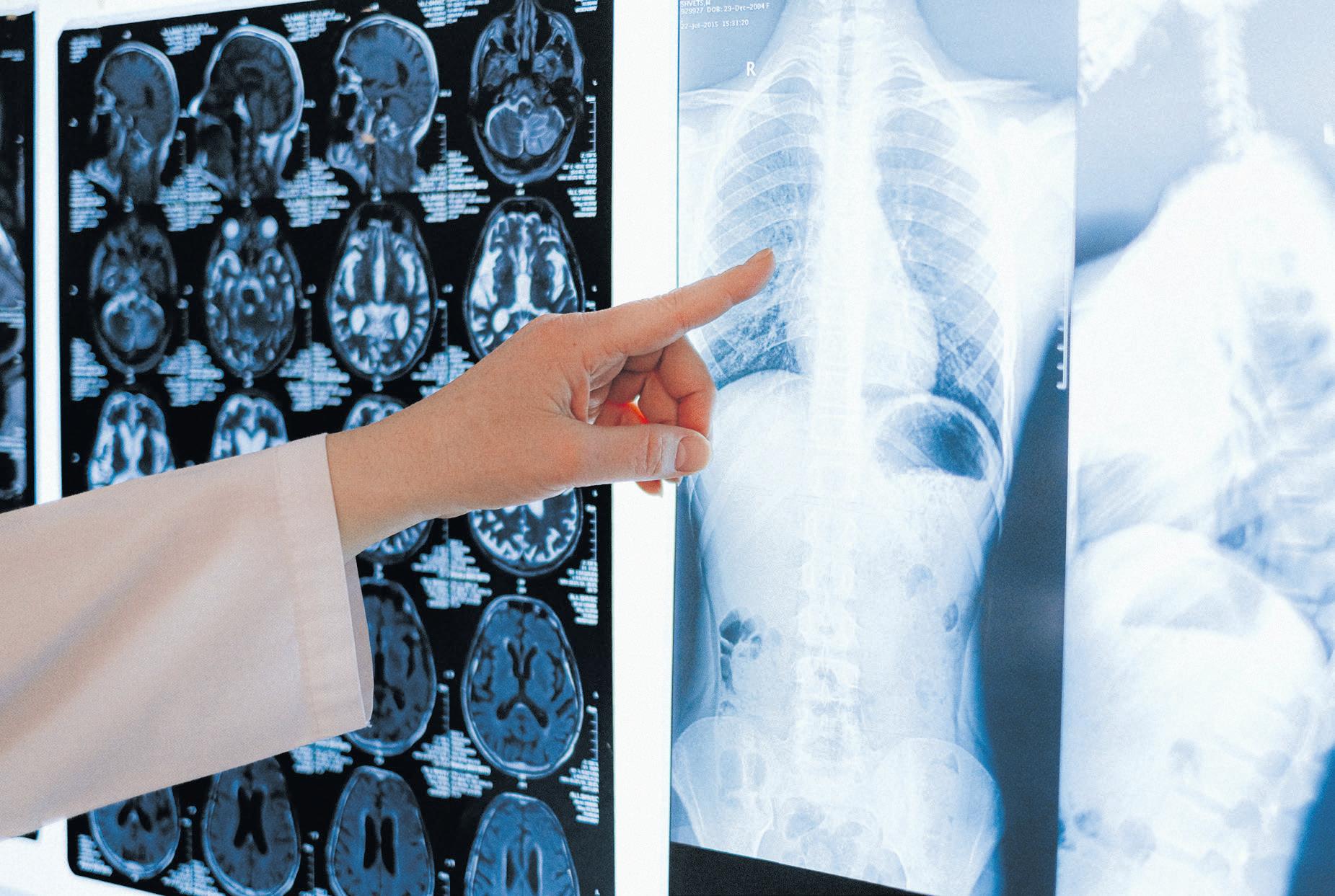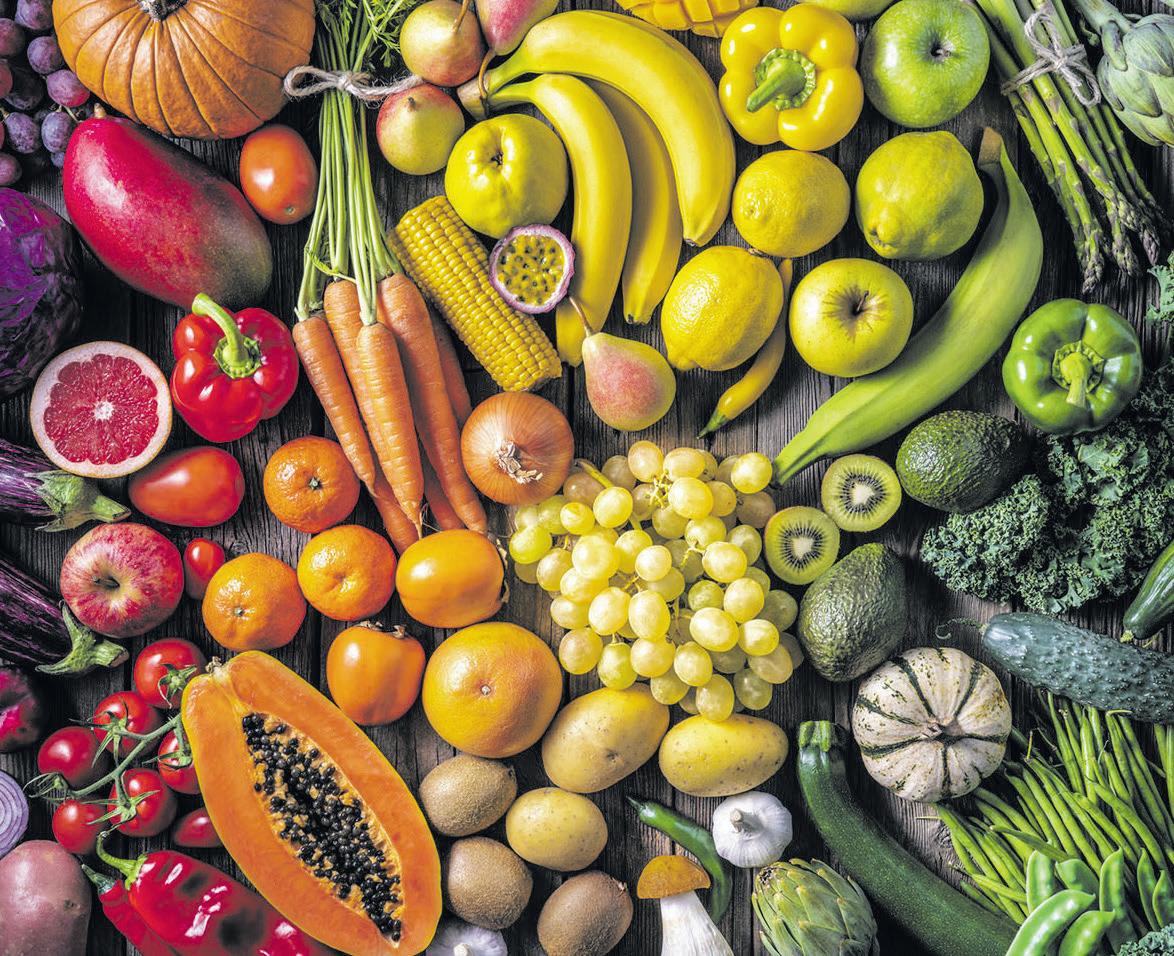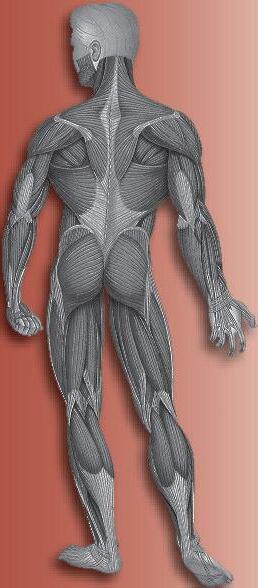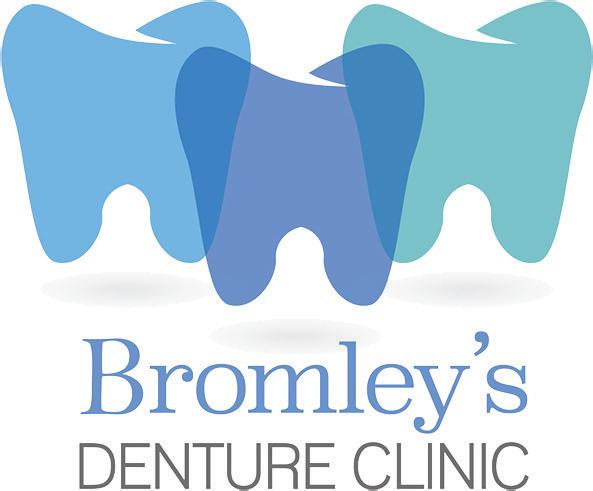
3 minute read
CSIRO study uncovers cystic brosis screening limitations
New research from Australia’s national science agency, CSIRO, has found that reproductive carrier screening tests, used before or in early pregnancy to identify inherited genetic conditions, potentially miss up to 10 per cent of cystic brosis (CF) causing variants in Australia.
e study, which involved an analysis of data from 3958 people with CF between 1970 and 2020, also found that East Asian people are disproportionately a ected by this testing limitation.
CF is an inherited disorder that causes severe damage to the lungs, digestive system, and other organs in the body. Reproductive carrier screening tests are important as the CF-causing gene is passed down from both parents who usually do not have the disease themselves.
Conducted by CSIRO scientists in partnership with Pathology Queensland and Australian gene testing lab
Genepath, the research was recently published in Prenatal Diagnosis, and provides key insights to assist in improving reproductive carrier screening.
Letitia Sng, CSIRO research scientist and co-lead author on the study, said European and
Australian guidelines for CF reproductive carrier screening recommend testing a small number of high frequency CF-causing variants.
“Our research found that the current approach of limiting reproductive carrier screening tests to a small number of high frequency CF variants impacts the e ectiveness of screening,” Dr Sng said. “ is reduced e ectiveness disproportionately a ects people of East Asian ethnicity, indicating a potential failure of the current recommend- ed testing protocols to include variants arising in certain ethnicities.
“ is may be a result of the changing demographics of the Australian population over the last 50 years, with a signi cant increase in immigration to Australia from non-Eu- ropean countries such as China and India,” she said.
Bennett Shum from Genepath said along with ndings about the failure of current screening to detect certain CF variants, they were also able to con rm that in Australia, 1 in 34 individuals carry the gene for CF (known as CTFR), making carrier screening useful for people looking to have babies.
Dr Sng said given the increasing cost-e ectiveness and comprehensiveness of CFTR gene analysis techniques, their results point to a need for the revision of reproductive carrier screening approaches in Europe and Australia to account for multi-ethnic populations.
“More research is needed into existing inequalities in current screening recommendations in CF and other genetic diseases to ensure the accuracy of carrier screening for all,” Dr Sng said.
Rainbow of fruit and veg the best prevention against prostate cancer
Rainbow of fruit and veg the best prevention against prostate cancer e ndings, from two studies published in the journal Cancers, highlight the importance of a Mediterranean or Asian diet that includes these foods.
Men who consume colourful fruits and vegetables on a regular basis are less likely to be diagnosed with prostate cancer (PC), according to new research by University of South Australia scientists.

A rainbow of foods rich in certain micronutrients helps to prevent prostate cancer (PC) as well as speed up recovery among men who undergo radiation treatment for the disease.
Researchers compared micronutrient plasma concentrations of prostate cancer patients with a healthy control group, revealing low levels of lutein, lycopene, alpha-carotene, and selenium in PC patients and high levels of iron, sulphur, and calcium in the same group, relative to controls.
Increased DNA damage a er radiation exposure was also associated with low lycopene and selenium in blood plasma.
Men with plasma concentrations lower than 0.25 micrograms (ug) per millilitre (mL) for lycopene and/or lower than 120ug/L for selenium have an increased risk of prostate cancer and are likely to be more sensitive to the damaging e ects of radiation.
Foods that are rich in lycopene include tomatoes, melons, papayas, grapes, peaches, watermelons, and cranberries. Selenium-rich foods include white meat, sh, shell sh, eggs, and nuts.
Study co-author Dr Permal Deo says eating foods that are naturally rich in lycopene and selenium is preferable to taking supplements, where the bene ts are limited, according to previous studies.
“Our recommendation is to adopt a Mediterranean diet enlisting the help of a dietician because people absorb nutrients in di erent ways, depending on the food, the digestive system, the person’s genotype and possibly their microbiome,” Dr Deo says. Prostate cancer remains one of the most common and fatal cancers in men, but the nutritional deciencies associated with it remain largely unknown, hence this study. Other risk factors, such as ethnicity, family history and age have previously been linked to prostate cancer. e research is the rst to evaluate plasma con.

“ ere is strong evidence that being overweight and tall increases the risk of prostate cancer. Diets high in dairy products and low in vitamin E may also increase the risk but the evidence is less clear.” Vitamin E is found in plant-based oils, nuts, seeds, fruits, and vegetables.
For all your aches, pains, strains and migraines THINK BOWEN THERAPY (THE AUSSIE THERAPY)
Practicing Bowen Therapy for the past 27 years











